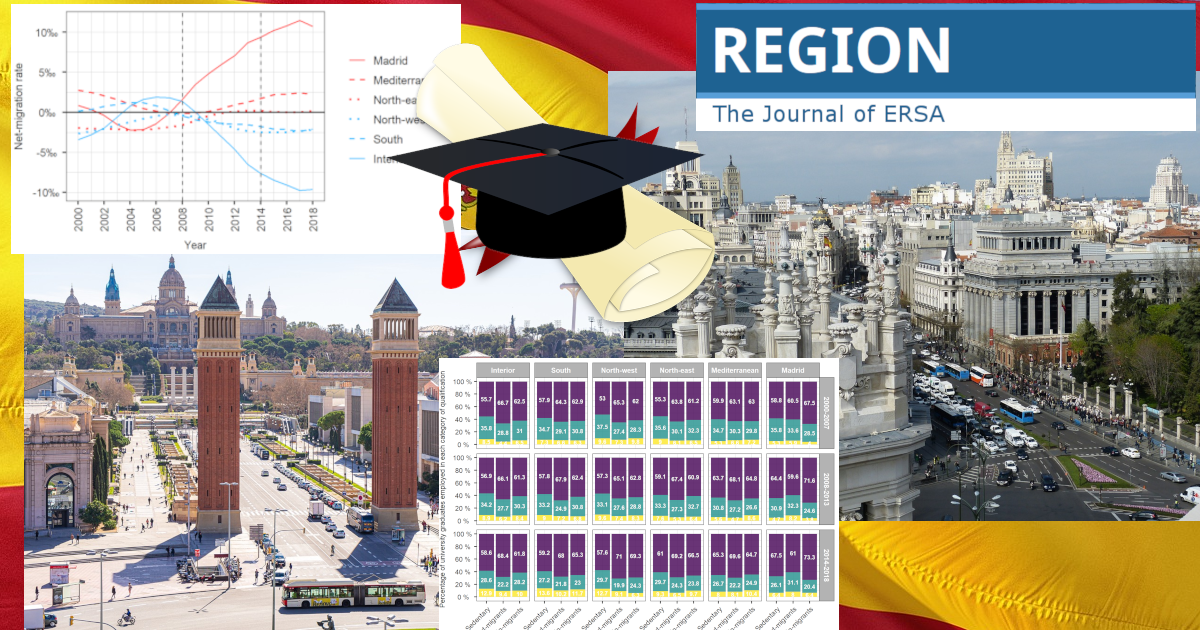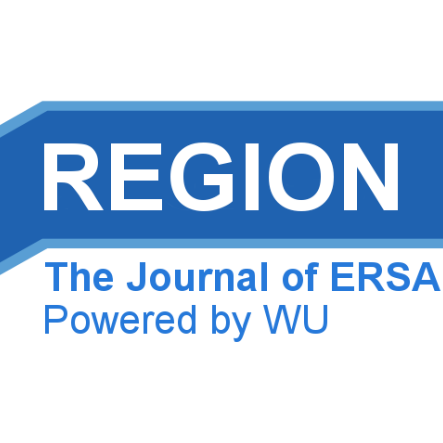Between leading and lagging
Interregional migration, unemployment and over-education among college graduates in the aftermath of the 2008 recession
DOI:
https://doi.org/10.18335/region.v10i1.453Abstract
In this paper, we analyse the interregional migration of Spanish-born young adults by educational attainment and explore unemployment and over-education in the labour market among internal migrants and sedentary individuals with a university degree. We used register data of population movements from 2000 to 2018 to analyse internal migration patterns and the Labour Force Survey to study the educational attainment of migrants, as well as unemployment rates and over-education among college graduates. Our results indicate a regional polarisation after the economic crisis. Peripheral regions in the interior of Spain have been affected by an increasing exodus of university graduates, in addition to high levels of unemployment and over-education among individuals with a university degree who remain at origin. However, peripheral regions in the north-west and south of Spain have been less affected by out-migration, even though the south has shown higher levels of unemployment for college graduates. The central region of Madrid has emerged as the main destination for university graduates, with a large capacity to employ populations with university education from other regions. Semi-central regions of the Mediterranean and north-east of Spain retain local college graduates and exhibit good labour market conditions among residents with a university degree, but they are not destinations of individuals with university education from other regions.

Downloads
Published
How to Cite
Issue
Section
License
Copyright (c) 2023 Miguel González-Leonardo

This work is licensed under a Creative Commons Attribution 4.0 International License.
REGION is an open journal, and uses the standard Creative Commons license: Copyright We want authors to retain the maximum control over their work consistent with the first goal. For this reason, authors who publish in REGION will release their articles under the Creative Commons Attribution license. This license allows anyone to copy and distribute the article provided that appropriate attribution is given to REGION and the authors. For details of the rights authors grant users of their work, see the "human-readable summary" of the license, with a link to the full license. (Note that "you" refers to a user, not an author, in the summary.) Upon submission, the authors agree that the following three items are true: 1) The manuscript named above: a) represents valid work and neither it nor any other that I have written with substantially similar content has been published before in any form except as a preprint, b) is not concurrently submitted to another publication, and c) does not infringe anyone’s copyright. The Author(s) holds ERSA, WU, REGION, and the Editors of REGION harmless against all copyright claims. d) I have, or a coauthor has, had sufficient access to the data to verify the manuscript’s scientific integrity. 2) If asked, I will provide or fully cooperate in providing the data on which the manuscript is based so the editors or their assignees can examine it (where possible) 3) For papers with more than one author, I as the submitter have the permission of the coauthors to submit this work, and all authors agree that the corresponding author will be the main correspondent with the editorial office, and review the edited manuscript and proof. If there is only one author, I will be the corresponding author and agree to handle these responsibilities.




